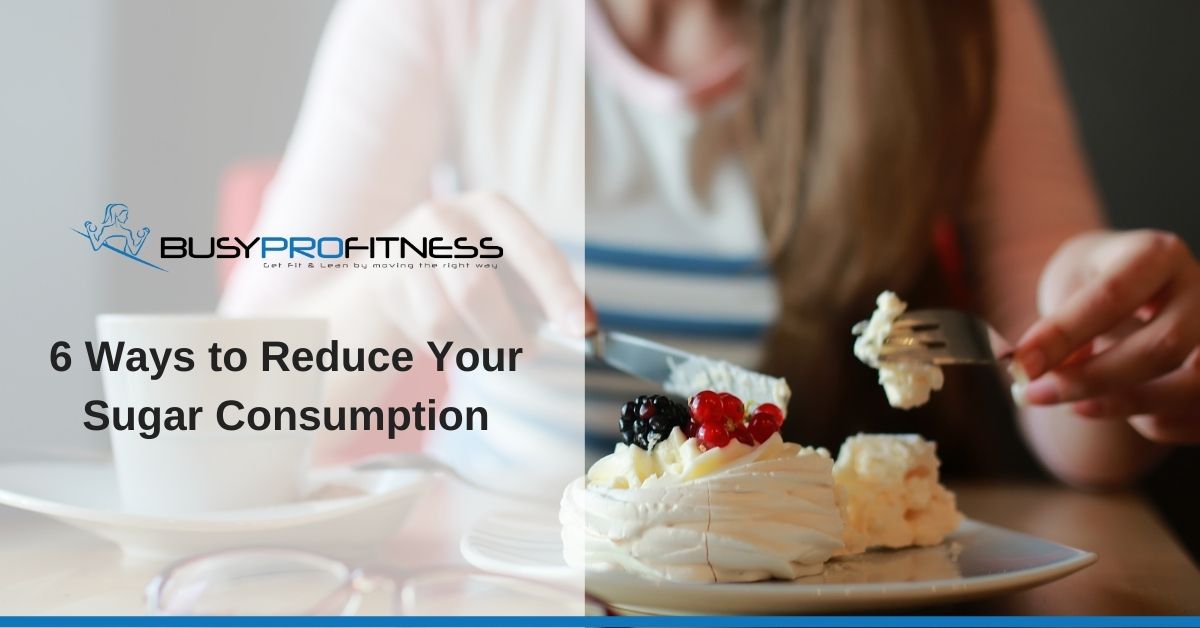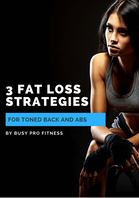Free 5-Day
|
|
Reducing sugar consumption is a great strategy when the overall goal is to reduce body fat and get leaner. However, it may not be as simple as it sounds to achieve. Sugar is easy to spot in chocolate, sweets or desserts. But what about those hidden sugars? Sugar is everywhere, even where you might not expect it, like in processed foods and bread. The British Diabetic Association suggests that adults should consume no more than 30g sugars per day. So what are some ways to reduce sugar consumption, without giving up all the delicious food you love? 1. Learn All the Names of Sugar on Food Labels The first thing you'll need to know when reading food labels is that sugar is sometimes referred to by other names, such as fructose, lactose or corn syrup. There are over 40 names for sugar, but luckily in the UK, the nutritional information panel on food packaging refers to them all collectively as "sugars" - and shows two numbers: per 100g and per serving. This "sugars" number is all of the different types of sugars in the product, and sugar is represented on the label in the red, amber and green traffic light system. 2. Understand Sugar Content In Drinks One of the easiest ways to lose track of your daily sugar intake is through sugar in drinks. The spoons of sugar you add in your coffee or tea could be replaced with zero-calorie natural sweeteners like Stevia. You can also work towards gradually lowering your intake. When it comes to "packaged" drinks, you could replace sugary beverages with diet alternatives or water. Alcoholic drinks are often full of sugar when made with pre-mixed flavours and syrups. Switching your cocktail for a mixed drink, or even reducing alcohol intake more generally can help with this. 3. Reduce Sugar in CookingAdding sugar to home-cooked recipes can add up calories quickly. Consider swapping refined sugars for the natural sweetness of dried fruit. Fruits still contain sugar, so taste sweet, fresh and seasonal, and have a heap of micronutrients and fibre which belong in any healthy diet. Delicious in both baking and at breakfast time, this can be a great way to focus on hitting your five a day too. If you want fruit which is out of season, consider a tinned option. Tinned fruit has a long shelf life, is more cost-effective than fresh, and if you buy "in juice" rather than "in syrup" is a healthy option. This is an incredibly tasty addition to breakfast smoothies. 4. Set BoundariesIf you know you struggle to stop eating those trigger foods once you start, you may want to consider keeping them out of your home and saving them for special occasions. There is nothing wrong with being strict with yourself if you know it frees up mental energy you'd otherwise spend in an internal battle trying to resist those foods. You could also consider lower sugar alternatives; this can be useful, but be aware that instead of sugars, food manufacturers will sometimes substitute fats to preserve taste. Although dietary fats help maintain feelings of fullness, and healthy fats are essential in a balanced diet, they are calorific. So consume these foods mindfully and in moderation. 5. Focus on Portion SizeIf you love sweet foods, and you particularly want to keep them in your diet, there's an argument to be made for this. Eliminating your favourite foods can reduce dietary compliance in some people, and lead to the diet being abandoned as being too strict. If that sounds like you, consider keeping sweet foods in the diet and putting your effort into enjoying a small portion of these favourites. You could use portion sizing to reduce calories (eat one square of chocolate after every evening meal), or you could use timeboxing to reduce calories (on a Saturday evening, I like to enjoy a piece of cake with a film). Either strategy would work for staying lean. 6. Get Enough SleepIt may seem like an odd way to reduce sugar consumption. Still, research has consistently demonstrated that when deprived of either quality sleep or a sufficient quantity of sleep, it becomes harder to make good food choices. The foods people prefer to select when tired are those high sugar options, and people tend to eat more of them than they would if they were adequately rested. Wrapping Up There's nothing inherently wrong with sugar in your diet, especially when it comes from whole food sources such as fruit or milk. But refined sugars are "hyper-palatable", and that makes them easy to overeat.
0 Comments
Leave a Reply. |
AuthorWrite something about yourself. No need to be fancy, just an overview. Download 3 Fat Loss Strategies for Toned Abs and Back Guide!
Archives
October 2021
Categories |
CompanyBusy Pro Fitness offers personal training in Brent Cross for clients based in Brent Cross, Hampstead, Belsize Park, St John's Wood, West & South Hampstead, Childs Hill, Finchley, Golders Green and surrounding areas but we also provide a Virtual Training and Online Coaching service for those clients who live elsewhere and Worldwide.
|
About |
|
|
© COPYRIGHT 2015. ALL RIGHTS RESERVED.
|
Website Design by My Personal Trainer Website
|



 RSS Feed
RSS Feed
